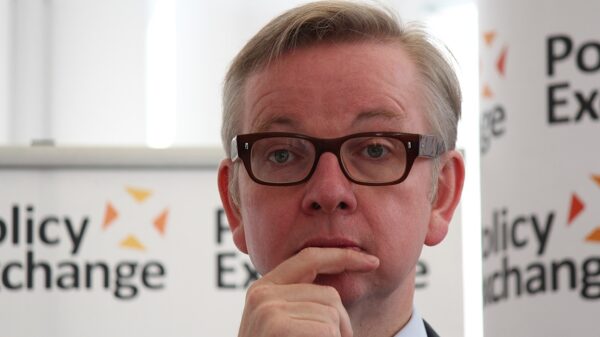Staff writer Ben Evans discusses the battle over the leadership of the Scottish National Party (SNP) and what this means for the independence issue.
The resignation announcement of Scottish First Minister (FM) Nicola Sturgeon, on Wednesday February 15 took British politics by surprise. Sturgeon seemed to be in a strong political position, as a popular (if divisive) politician, standing on a potential springboard for independence. The UK government’s recent use of Section 35 of the Scotland Act (1999) has brought devolution and separatism back into the headlines. Section 35 was used to prevent the Scottish Government’s Gender Recognition Act which would have allowed transgender people to self-identify. Beyond the immediate debate over the policy, Westminster’s intervention could have easily been spun as ‘English overreach’, garnering further support for the SNP’s ultimate goal of independence.
Many Brits saw Nicola Sturgeon as synonymous with the SNP and a large portion of their votes can be attributed to her charisma and relationship with the Scottish people. This was seen after the COVID-19 pandemic, when her personal performance out-scored the Scottish Government itself (with an approval of 82%).For her party’s popularity to continue, her replacement will have to be able galvanise this same electric support. So who do the SNP have waiting to step up to such a task, and what does this mean for Scottish politics as a whole? This is especially important when regarding the support for Scottish independence which presently hangs on a knife edge.
Nicola Sturgeon’s reasoning for her resignation has followed a seemingly growing trend from politicians. She stated that she couldn’t give the required “one hundred percent” to her highly important position and that the decision had been weighing on her mind for months in advance. This follows a similar surprising resignation from New Zealand PM, Jacinda Ardern, who also cited ‘burn out’ as her primary reason to go.
This line of reasoning is refreshing and honourable, but the cynics have pointed out numerous political challenges that were emerging for Sturgeon. These include questioning about a £100,000 loan to the SNP, made by its chairman (and her husband) Peter Murrell, as well as the division within the pro-independence vote over trans rights. There are always challenges in politics and potentially these issues offered added weight to Sturgeon’s stresses,. Thus despite the SNP’s potentially highly advantageous position, it seemed that for Sturgeon it just had become too much. The issue that remains is that the very position that the SNP finds itself in is primarily due to Sturgeon’s political manoeuvring. Her efforts may be placed in jeopardy under new leadership.
The present favourite isn’t exactly clear, but there are two clear frontrunners, with another candidate somewhat behind. Presently the Scottish Finance Minister, Kate Forbes, is most popular with the party’s 100,000 member base. She is seen as the ‘change candidate’, with her Christian-conservative social views seemingly in opposition to the progressive direction that the party took under Nicola Sturgeon. This was naturally going to happen. With the SNP being inherently single-issue (focussed on independence) it attracts members from both the left and the right. Forbes has openly stated she would not have voted in favour of gay marriage, but she also wouldn’t have stood in the way of the democratic will of Holyrood. This rallied religious groups, but has also polarised the younger and left-leaning sections of the SNP. The more culturally progressive Scottish people have not taken kindly to the 32 year old. Sturgeon herself warned about the disconnect between Forbes and mainstream Scotland. However, it will be membership who decide, and her unwavering commitment to independence could be what propels her to Bute House.
Forbes’ main opponent is the ‘continuity candidate’ Humza Yousaf. The present Health Minister gained relative popularity after a series of interviews exposed Kate Forbes’ views on marriage equality to public dismay and scrutiny. Yousaf has promised to “challenge” the Westminster Government over their use of Section 35 to strike down the Gender Recognition Act. On this issue, he has reiterated that “equality and the protection of rights are at the very core of [his] being”.
This has clearly placed a wedge between Yousaf and Forbes, but this is not their own difference. Their calls for independence strike very different tones. Yousaf admits that there’s “no clear majority” right now. He’s “not wedded” to Sturgeon’s strategy of using the 2024 general election as a de-facto independence referendum, instead he wants to focus on the “policies of independence” instead of the “process”. This is certainly vague, but one can infer a less aggressive strategy compared to the other candidates. This contrasts starkly with the third placed candidate, Ash Regan, who has proposed re-uniting the SNP with the Alba Party for a broader coalition of independence. The Alba Party was established by former FM and SNP leader Alex Salmond when he was isolated by Sturgeon following a series of sexual allegations.
Equality and the protection of rights are at the very core of my being. I have lived my entire life in Scotland as a minority, often having to fight for my rights. I want there to be no doubt in anyone’s mind, whoever you are, that I will fight to protect all of our rights. pic.twitter.com/KinuasFCvS
— Humza Yousaf (@HumzaYousaf) February 21, 2023
These are the main points of contention, with the candidates being broadly in agreement over economic policy and key public services. The essential takeaway is not that there are new divisions within the SNP, nor any radical shift in policy (independence is still the aim), but that the SNP have lost their most crucial asset in Nicola Sturgeon.
None of the frontrunners in this leadership race can compare to her stage presence, charisma or use of rhetoric. Sturgeon used all of these assets to forge a wide voter base with many soft-unionists still placing their faith in her based off her perceived high level of competence and her strong opposition to the Conservatives. To contrast this, Humza Yousaf’s poor record over the Scottish NHS whilst as Health Secretary has damaged confidence in his ability to lead. At the same time, Kate Forbes’ views on Marriage Equality and Ash Regan’s resignation from government over the Gender Recognition Act have worried some that there’s a chronic disconnect between their views and the views of ‘Progressive Scotland’ (the voting block most in favour of independence).
It is very difficult to see that any of these potential leaders could garner the same level of support that Sturgeon managed. We can expect Labour, the Liberal Democrats and the Scottish Greens to be eagerly receiving a boost in support over the coming months. This is already happening, with Anas Sarwar’s Scottish Labour closing the gap on the SNP to only 2 points.
Despite the hangover from Brexit and Truss’ disastrous ‘Mini-Budget’, this seems to reverse the fortunes of Scottish nationalists once again. Little is certain while public opinion about Scotland’s future hangs in the balance (currently 48% in favour of remaining, 42% leaving). What we can be certain of is that the new First Minister will inherit a situation moving against the SNP. The honeymoon period will feel more like a baptism of fire.
















